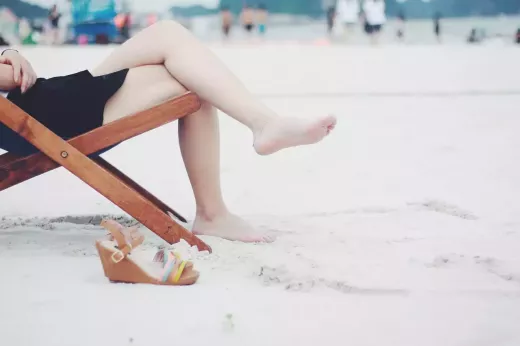Why is sleep important for skin health?
We all know that getting enough sleep is important for our overall health and wellbeing, but did you know that it's also crucial for maintaining healthy skin? When we sleep, our bodies go into repair mode, which means that our skin cells are busy regenerating and repairing any damage that may have occurred during the day. This is also the time when our skin is most receptive to skincare products, as the skin's barrier function is at its lowest.
However, it's not just about the amount of sleep we get, but also the quality of our sleep. Poor quality sleep can lead to a number of skin problems, including dark circles, puffiness, and even premature aging. So, if you want to wake up with glowing, healthy-looking skin, it's crucial to prioritize your sleep.
How lack of sleep affects the skin
We've all experienced the effects of a bad night's sleep on our skin. Dark circles, puffiness, and a dull complexion are just a few of the ways that lack of sleep can show up on our skin. But did you know that chronic sleep deprivation can actually lead to more serious skin problems, such as fine lines, wrinkles, and even acne?
One of the reasons for this is that lack of sleep can lead to an increase in inflammation in the body. This inflammation can cause damage to the skin's collagen and elastin, which are essential for maintaining a youthful, plump complexion. In addition, sleep deprivation can also lead to a decrease in the production of growth hormone, which is necessary for skin repair and regeneration.
Tip 1: Develop a nighttime skincare routine
If you're serious about maximizing your beauty sleep, then it's important to develop a nighttime skincare routine that works for you. This should include cleansing your skin to remove any makeup and impurities, as well as applying any serums or moisturizers that are appropriate for your skin type.
When choosing your skincare products, look for ingredients that are known for their skin-soothing and hydrating properties, such as hyaluronic acid, glycerin, and aloe vera. These ingredients will help to keep your skin hydrated and nourished while you sleep, so that you wake up with a healthy-looking complexion.
Tip 2: Choose the right pillowcase
Believe it or not, the type of pillowcase you use can actually have an impact on the health of your skin. Traditional cotton pillowcases can be rough and abrasive, which can cause friction and damage to the skin as you sleep. This can lead to wrinkles, creases, and even breakouts.
To avoid this, consider switching to a silk or satin pillowcase. These fabrics are much gentler on the skin, and can help to reduce friction and damage. In addition, silk and satin pillowcases are also less absorbent than cotton, which means that they won't absorb as much of your skincare products as you sleep.
Tip 3: Create a calming sleep environment
Creating a calming sleep environment is essential for getting a good night's sleep. This means minimizing distractions, such as noise and light, and creating a space that is comfortable and relaxing.
One way to do this is by investing in a good quality mattress and pillows that provide the right amount of support for your body. In addition, consider using blackout curtains or an eye mask to block out any light that may be keeping you awake. And if noise is an issue, try using earplugs or a white noise machine to create a more peaceful sleep environment.
Tip 4: Get enough sleep
Of course, one of the most important tips for maximizing your beauty sleep is to simply get enough sleep. While the amount of sleep required can vary from person to person, most adults need between 7-9 hours of sleep per night to function at their best.
To ensure that you're getting enough sleep, try to establish a regular sleep routine. This means going to bed and waking up at the same time each day, even on weekends. In addition, avoid caffeine and alcohol in the hours leading up to bedtime, as these can interfere with your ability to fall asleep and stay asleep.
Tip 5: Incorporate natural sleep aids
If you're struggling to get enough sleep, there are a number of natural sleep aids that you can try. Chamomile tea, for example, is known for its calming properties and can help to promote relaxation and sleep. Lavender essential oil is another popular sleep aid, as it is known to have a calming and soothing effect on the mind and body.
In addition, consider incorporating relaxation techniques into your bedtime routine, such as deep breathing or meditation. These techniques can help to reduce stress and promote a more restful night's sleep.
Additional tips for maximizing your beauty sleep
In addition to the tips mentioned above, there are a few other things you can do to maximize your beauty sleep. For example, try sleeping on your back, as this can help to prevent wrinkles and creases from forming on your face. And if you're prone to puffiness, try elevating your head slightly with an extra pillow to help reduce fluid buildup.
Finally, don't forget to stay hydrated throughout the day. Drinking enough water is essential for maintaining healthy, hydrated skin, and can also help to improve the quality of your sleep.









